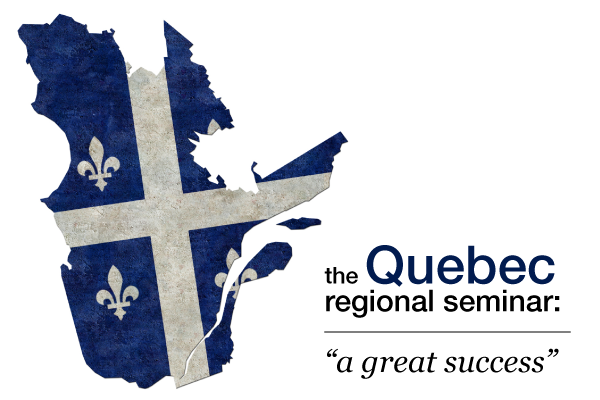
This is our feature article in a series that will shine the spotlight on the different jobs our members do. To protect them from possible retribution in the workplace, we have concealed the identity of the individuals interviewed.
Would your boss ever send you to a crack house?
That kind of thing used to happen all the time to our members who work as field interviewers for Statistical Survey Operations. These members collect data for Statistics Canada, by going door-to-door and engaging everyday Canadians.
“When I first started, it was just before we were unionized. There was a really cavalier attitude towards health and safety. It was almost like a competition as to who could do the more precarious thing,” said Woman 1, who works as a field interviewer.
Woman 1 described employees boasting about the dangerous places they’ve entered and supervisors coaxing other interviewers into going into these same places because others before them had done it.
“Generally, that would not happen today,” said Woman 1. “It wasn’t a good culture at all. It was just putting people in peril.”
A lot of progress has been made to change this culture. “Much has improved since health and safety committees were established. There is much better awareness,” said Woman 1. These days, dangerous buildings and high-crime areas are listed in a registry of unsafe places to prevent interviewers from walking into dangerous situations.
But the nature of the work has field interviewers coming into contact with all sorts of people. “You just don’t know what’s behind that door,” said Woman 1.
In fact, it’s not just drug-addicted criminals that interviewers come into contact with. Some interviewers encounter racism in the raw form. “People in their own house figure they can do things they wouldn’t do in their workplace,” said Woman 1. She added that the job can be especially hard for racially-visible people.
This is one of the few jobs where there is a bias against men. Respondents can often be weary of speaking to men, letting them into their homes and speaking to them about sensitive subjects. “It’s a hurdle for men to do this job,” said Woman 1. The workforce at SSO tends to be predominantly female.
This workforce also has to deal with problems commonly faced by people who work on the road. Woman 1 said that the job can sometimes take her in very rural areas.
“Where are we? Out in a lonely country gravel road where the next house is half a kilometer away. And if something happens, like our car breaks down, we don’t have a phone.”
Like most members at SSO, Woman 1 feels the employer should provide cell phones to its field interviewers, to use in case of emergency.
Woman 2, who also works as a field interviewer, said that after the 2006 census, Stats Canada had a number of cell phones left over. “They should have given them out to field interviewers, but instead, they gave them to senior interviewers who work out of their homes.”
While precarious work conditions are a great concern, another is the workload’s unpredictability.
“The real basic problem for this group is that there’s no guarantee of work,” said Woman 2. “It’s ridiculous. There’s no guaranteed minimum hours.”
A common practice when dealing with employees who have irregular work hours is to have some basic guaranteed minimum salary. For example, flight attendants are normally guaranteed a set amount of hours each month; if the employer fails to assign that many hours, flight attendants can nonetheless expect to be paid that minimum.
Not so for field interviewers! The hours can fluctuate from week to week. “It’s feast or famine,” remarked Woman 1.
The nature of the work also means that if too many respondents refuse to answer questions, interviewers end up earning fewer hours as a result.
The job also demands a lot of discipline. “You charge your time as you do it,” said Woman 1. “You can feel like you worked 10 hours, but only have worked four because it’s broken up.” In other words, it’s like working multiple shifts in one day.
Back when the group organized in 2001, the labour force was smaller. Woman 2 said it was made up primarily of retired school teachers, who would use the small sum of money they earned for spending on inessentials. “Back then, it was a lot like the kind of work people do around elections – it’s something extra, but not something you depend on,” she added.
But gradually, more and more federal departments began needing information. A stable workforce was needed. And of course, the union had an uphill battle when it came to promoting health and safety and a host of other issues. That battle continues today.
The SSO bargaining team recently reached an impasse. Among some of the demands are wage increases to have field interviewers reach parity with comparable workplaces. The bargaining team hopes arbitration will lead to a fair deal.
But health and safety are not part of the negotiations; health and safety isn’t negotiable. It’s a must.
Woman 2 said the best way for field interviewers to stand up for their rights is to use their health and safety committees properly and challenge the employer.
“When they hear of something that went wrong, they need to put it in an incident report,” said Woman 1.
“Health and safety is serious. We don’t want people putting their safety at risk.”
Despite the many challenges faced by field interviewers, Woman 1 said she really enjoys the work.
“You get to meet people from all walks of life – all kinds of different characters – people you wouldn’t meet and conversations you wouldn’t have if you weren’t doing this job.”
Do you have a suggestion for a job that we should feature in our Day in the Life series? Send an email to communications@une-sen.org.



